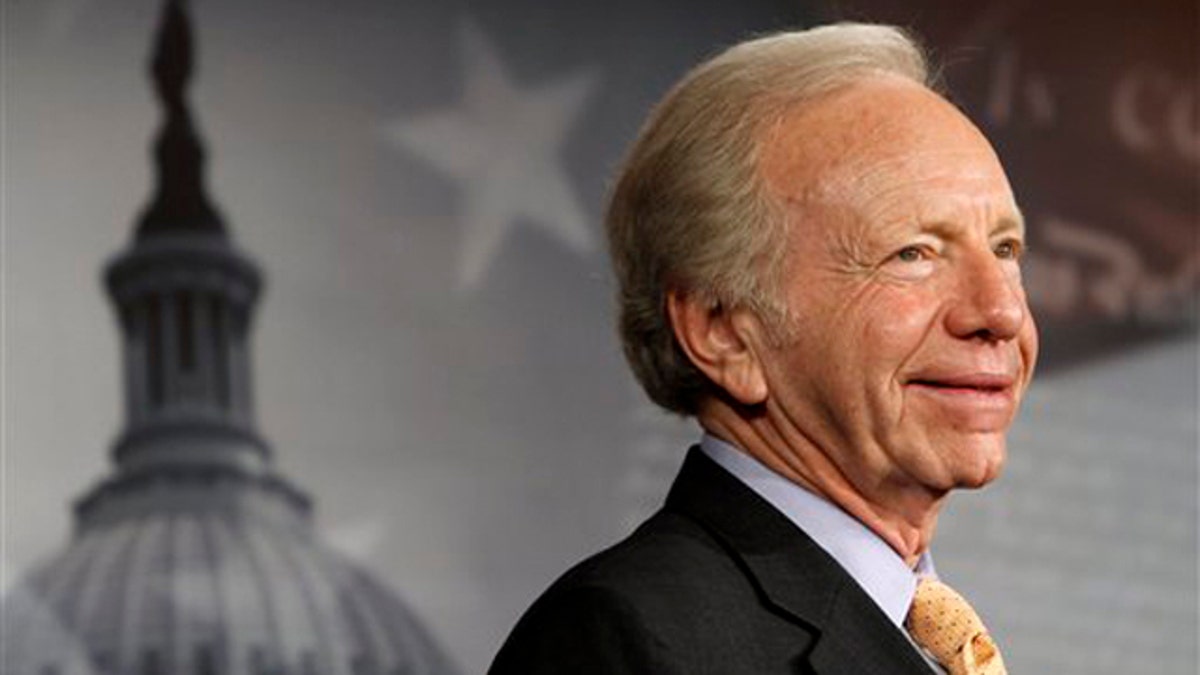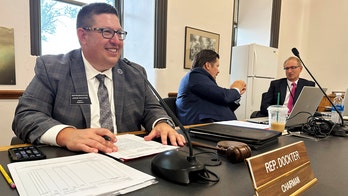
FILE: Jan. 31, 2012: Sen. Joe Lieberman smiles during a news conference on Capitol Hill. (AP)
Senators are taking another crack at pushing a broad cybersecurity bill three years in the making, once again stripping a controversial Internet "kill switch" and making other concessions in a bid to find an elusive bipartisan majority in an election year.
Several Republican senators already have raised concern with the bill, and have urged Senate leaders to allow time for other committees to weigh in.
But the authors are stressing the urgency of imposing a new cybersecurity plan at a time when major data breaches and denial-of-service attacks are increasingly making the headlines.
"This bill would begin to arm us for battle in a war against the cyber mayhem that is being waged against us by our nation's enemies, organized criminal gangs, and terrorists who would use the Internet against us as surely as they turned airliners into guided missiles," Sen. Joe Lieberman, I-Conn., one of the bill's sponsors, said in a statement.
Sponsors introduced the Cybersecurity Act of 2012 on Tuesday.
The proposal omits emergency authority for the president -- a prior provision known as an Internet "kill switch" that would give the president the power to shut down online traffic by unilaterally seizing private networks. After a 2009 version included the provision, prompting a backlash, authors omitted it in subsequent drafts.
The 2012 bill also omits a provision that would have called for a "White House cybersecurity office." Instead, it calls on the Department of Homeland Security to consolidate cybersecurity programs into one office -- the "National Center for Cybersecurity and Communications."
At the heart of the bill is a requirement that the federal government identify the most critical components of the country's cyber-infrastructure and require them to meet certain security standards. This would cover everything from the nation's power to water to transportation services.
The bill would require DHS to look at systems that could, among other scenarios, severely damage the economy or cause widespread casualties if they were disrupted in a cyber attack. Operators would work with DHS to secure those systems.
The senators behind the bill noted that the latest version is the product of a series of hearings and meetings.
But seven GOP senators wrote in a letter Tuesday to Senate Democratic Leader Harry Reid and Senate Republican Leader Mitch McConnell that other committees still need a chance to take up the issue.
"This is not the kind of legislation that can result in a carefully balanced solution unless the full process is afforded," they wrote. The senators claimed "bipartisan working groups" that were established earlier to work on the bill "met infrequently -- if at all -- and did not function constructively."
The letter was signed by Sens. Saxby Chambliss, R-Ga.; Kay Bailey Hutchison, R-Texas; John McCain, R-Ariz.; Lisa Murkowski, R-Alaska; Jeff Sessions, R-Ala.; Chuck Grassley, R-Iowa; and Mike Enzi, R-Wyo.




